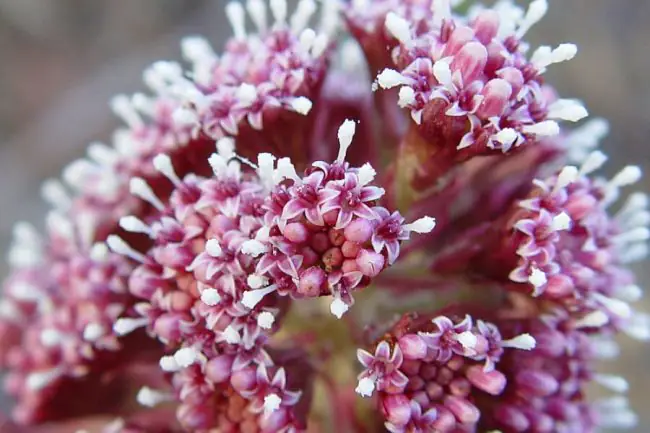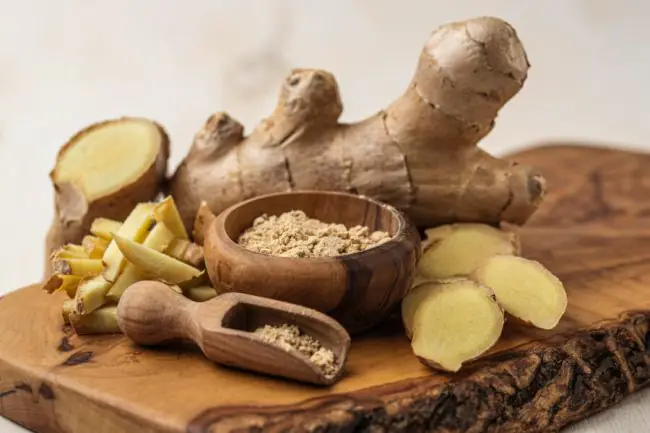Migraines can feel like an unwelcome guest that overstays its welcome, disrupting daily life with throbbing headaches, nausea, and sensitivity to light and sound.
While prescription medications are often the go-to solution for many, some people prefer exploring natural remedies to manage their headaches.
Herbal supplements have become a popular alternative due to their effectiveness and fewer side effects compared to conventional treatments.
Here are five herbal supplements that can provide relief from headaches and may even help prevent future attacks.
Whether you’re tired of side effects from medications or just curious about natural alternatives, these herbal remedies can offer a path toward holistic migraine relief.
Feverfew (Tanacetum parthenium)
Feverfew, also known as Tanacetum parthenium, is perhaps one of the best-known herbal supplements for preventing headaches. It has been used for centuries as a natural remedy for headaches and migraines.
Feverfew works by reducing inflammation and blood vessel constriction, which are common triggers for migraine attacks.
How it works:
Feverfew contains compounds such as parthenolide that help prevent the release of serotonin and prostaglandin substances that are thought to contribute to migraine onset.
By reducing inflammation in the blood vessels of the brain, feverfew may stop headaches before they begin.
How to use it:
Feverfew is available in capsule, tablet, or tea form. Consult your doctor before using it about the dosage and how to use it.
It’s important to note that consistency is key to its effectiveness, as it works best as a preventative rather than an immediate remedy.
Side effects and precautions:
Some people may experience mild side effects such as digestive upset or mouth ulcers. Feverfew should not be used during pregnancy as it may induce uterine contractions.
Butterbur (Petasites hybridus)
Butterbur is another herbal supplement that has been widely researched for migraine prevention. It is particularly effective in reducing the frequency of migraine attacks in chronic sufferers.
Butterbur works by relaxing blood vessels and reducing inflammation in the brain, which can help prevent headaches from occurring.
How it works:
Butterbur contains petasin, a compound that helps reduce muscle spasms and inflammation, both of which are common during a migraine attack. It acts as a smooth muscle relaxant, easing the tension in blood vessels that can trigger headaches.
How to use it:
Butterbur is typically taken as a capsule or tablet. The recommended dosage for migraine prevention is 50-75 mg twice a day.
It is important to ensure that the supplement is PA-free, as unprocessed butterbur contains harmful chemicals known as pyrrolizidine alkaloids (PA) that can damage the liver.
Side effects and precautions:
Butterbur may cause mild side effects like stomach upset and sleepiness. As with any herbal supplement, consult your healthcare provider before use, especially if you have liver conditions.
Peppermint (Mentha x Balsamea)
Peppermint, primarily known for its refreshing scent and flavor, is another useful herbal remedy for migraines, particularly for those who experience tension-type headaches alongside their migraines.
Peppermint oil can be applied topically to the forehead to reduce the pain and discomfort associated with headaches.
How it works:
Peppermint contains menthol, which has a soothing and cooling effect when applied to the skin. It helps relax muscles and improve blood flow, easing the pressure that often leads to migraines.
How to use it:
Peppermint oil should be diluted with carrier oil and applied to the temples or forehead during the early stages of a migraine.
You can also inhale peppermint essential oil for a calming effect, or drink peppermint tea to help reduce nausea.
Side effects and precautions:
Peppermint oil is generally safe when used topically, but it should always be diluted to avoid skin irritation. It’s also important to keep it away from the eyes and other sensitive areas.
Willow Bark (Salix spp.)
Known as “nature’s aspirin,” willow bark has been used for centuries as a pain reliever, making it an effective herbal option for treating headaches.
Willow bark contains salicin, a compound that has anti-inflammatory and pain-relieving properties similar to aspirin, but with fewer side effects.
How it works:
Salicin from willow bark is converted into salicylic acid in the body, which helps reduce inflammation and block the production of prostaglandin chemicals that contribute to pain during a migraine attack.
How to use it:
Willow bark is available in capsule, powder, or tincture form. The typical dosage is 240 mg of salicin per day. It’s not ideal for immediate relief but is effective in managing ongoing headache symptoms.
Side effects and precautions:
Willow bark may cause stomach upset or allergic reactions in people sensitive to aspirin. It should be avoided by those with bleeding disorders or who are taking blood-thinning medications.
Ginger (Zingiber officinale)
Ginger is a powerful anti-inflammatory herb that can help reduce migraines, particularly the nausea that often accompanies migraine attacks. Its versatility makes it an excellent addition to any natural migraine treatment plan.
How it works:
Ginger works by blocking the production of prostaglandins, chemicals that cause inflammation and pain. It also acts on serotonin receptors in the digestive system to relieve nausea, a common symptom.
How to use it:
Ginger can be taken as a tea, supplement, or in fresh form. For headaches, a common dosage is 250 mg of powdered ginger at the onset of symptoms. Drinking ginger tea throughout the day can also help prevent migraine-related nausea.
Side effects and precautions:
Ginger is generally safe when taken in moderation but may cause heartburn or digestive issues if consumed in large quantities. If you have a bleeding disorder or take blood-thinning medication, consult your doctor before using ginger.
Conclusion
When it comes to migraines, finding effective relief can feel like an uphill battle. However, nature offers some powerful solutions in the form of herbal supplements.
Feverfew, butterbur, peppermint, willow bark, and ginger are five of the most promising natural remedies that can help manage and prevent migraines.
While these herbal supplements have shown positive results in both research and practical use, it’s always a good idea to consult with a healthcare provider before adding them to your routine, especially if you are taking other medications.
FAQs
What is the best herb for migraines?
Feverfew and butterbur are two of the most commonly recommended herbs for migraine prevention.
How did I cure my migraines naturally?
Many people find relief through lifestyle changes, such as reducing stress, improving diet, and using herbal supplements like ginger or peppermint.
What are the 5 C’s of migraines?
The 5 C’s commonly associated with migraines are chronicity, consistency, cause, complexity, and care.
What vitamin is best for migraines?
Magnesium and riboflavin (Vitamin B2) are often recommended to help reduce migraine frequency and severity.







